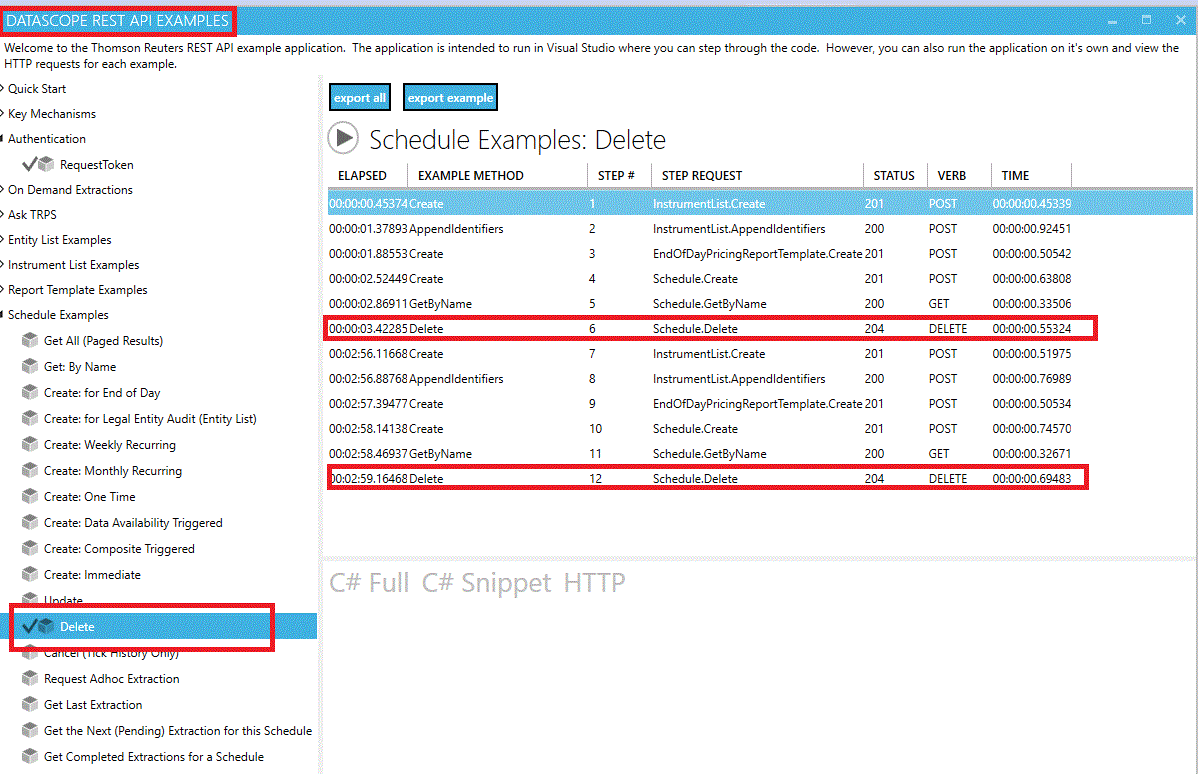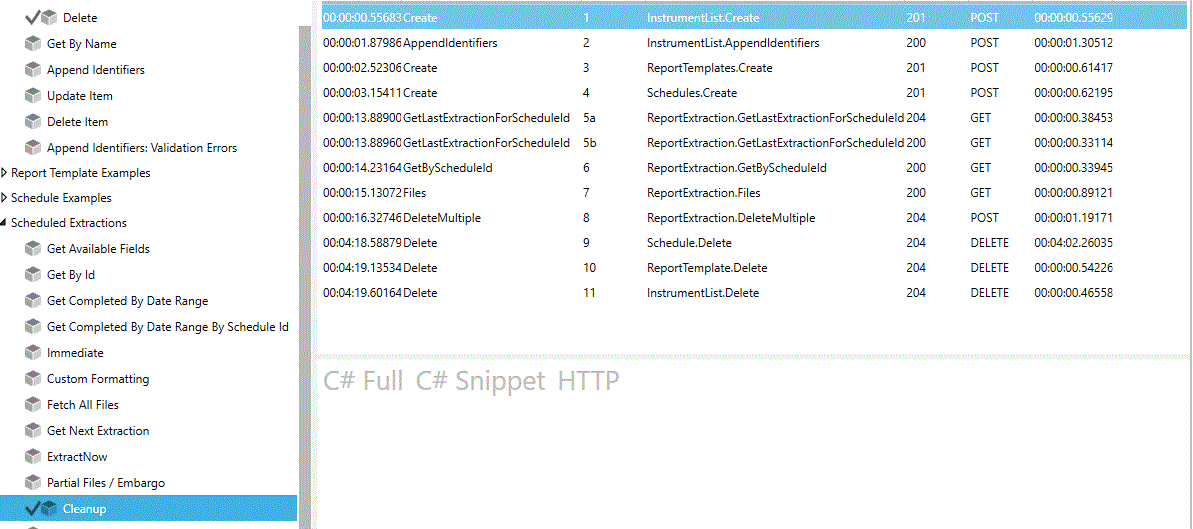It takes over 240 seconds to delete a temporary schedule.
Is this normal or is there something else I need to do first?
Flow is like this
// Create an immediate schedule
var schedule = new Schedule
{
Name = scheduleName,
TimeZone = TimeZone.CurrentTimeZone.StandardName,
Recurrence = ScheduleRecurrence.CreateSingleRecurrence(DateTimeOffset.UtcNow, true),
Trigger = ScheduleTrigger.CreateImmediateTrigger(true),
ListId = instrumentListId,
ReportTemplateId = reportTemplateId,
OutputFileName = outputFileName
};
_extractionsContext.ScheduleOperations.Create(schedule);
// get files
…
// delete files
…
_extractionsContext.ExtractedFileOperations.DeleteMultiple(fileIds);
// delete schedule (this is taking over 240 seconds to complete)
_extractionsContext.ScheduleOperations.Delete(schedule);
// delete instrument list
_extractionsContext.InstrumentListOperations.Delete(instrumentListId);





